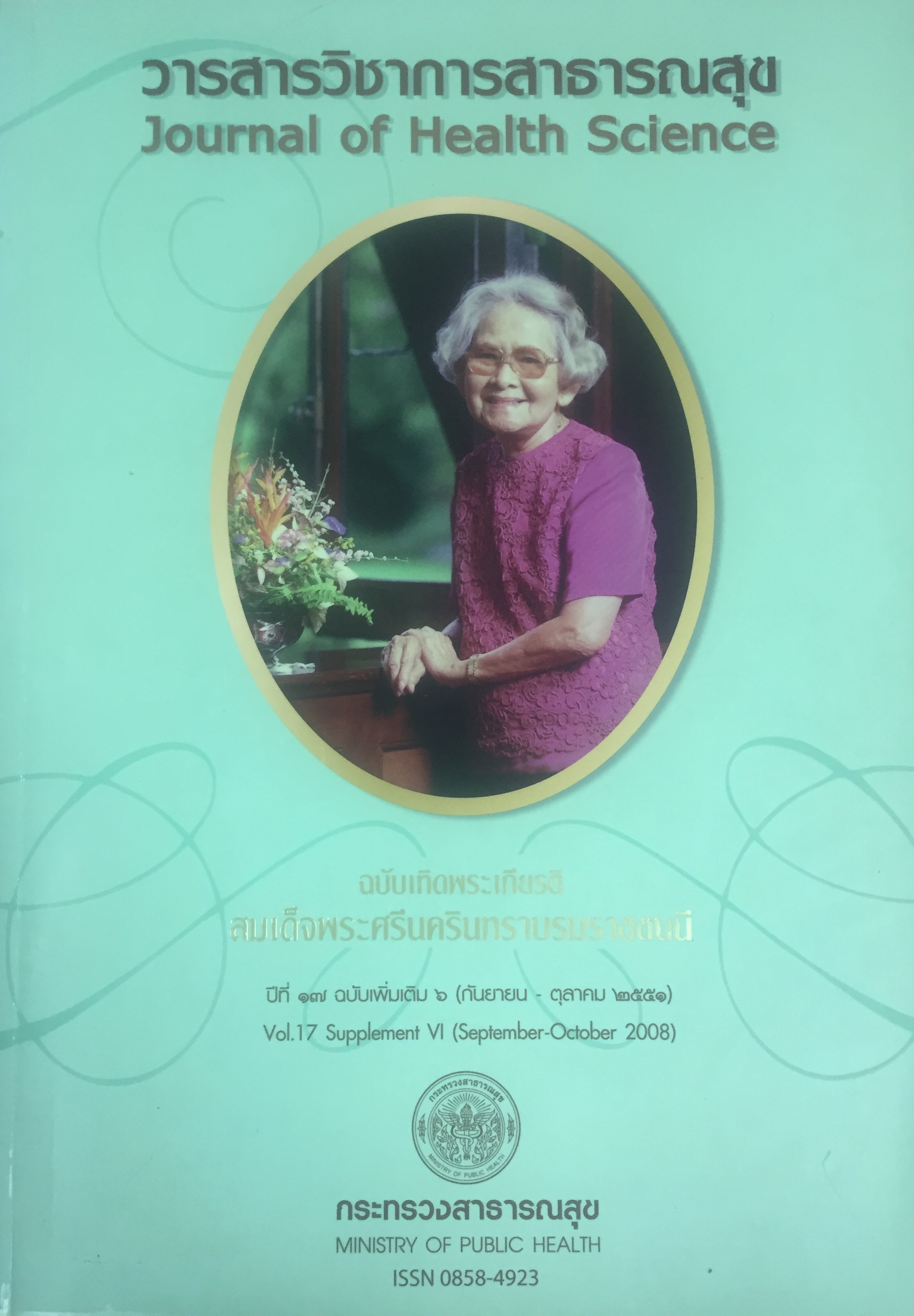Future of Family Planning Services among People Living with HIV/AIDS (PLHIV) in Thailand
Keywords:
family planning, antiretroviral drugs, people living with HIV/AIDS (PLHIV)Abstract
Family planning (FP) is very essential for people living with HIV/AIDS (PLHIV) to prevent unintended pregnancy. However, the increasing number of HIV+ women having unintended pregnancies is an indication of a gap in FP services. Attitudes of health personnel and PLHIV have been analyzed to identify motivators and barriers of FP. The researchers studied the readiness of health personnel toward providing FP services to PLHIV in relevant clinics during June-July 2008. The descriptive study measured attitude toward FP services among PLHIV leaders, clinic counselors, and supervisors of PLHIV groups, employing mixed method of quantitative and qualitative by using 5 sets of questionaire and knowledge management process. Representing a national scale, 8 provinces were selected by stratified random sampling at a regional level and simple random sampling at a provincial level. The results revealed that every hospital provides FP services to PLHIV without discrimination . Of the total FP caseload of PLHIV, 45.8 percent were referred from the ARV clinics. Among all FP clients, only 0.4 percent were known HIV-infected cases. One-fourth of providers at both reproductive health and ARV clinics felt uncomfortable in providing contraceptive services to PLHIV because of lack of knowledge about HIV/AIDS, drug interactions between ARV and contraceptive methods. All service providers said they were willing to provide services to PLHIV if they had proper knowledge. Most PLHIV in the study said that they would have preferred to delay pregnancy, but lacked adequate knowledge of contraception and felt more comfortable to discuss FP decisions in basic terms with other PLHIV first. Health personnel and PLHIV felt that success is due to having a positive attitude toward PLHIV and FP. Improvement of quality of life of PLHIV can be achieved by promoting voluntary contraception with well trained FP staffs and PLHIV leaders.
Downloads
Downloads
Published
How to Cite
Issue
Section
License
Copyright (c) 2018 Journal of Health Science

This work is licensed under a Creative Commons Attribution-NonCommercial-NoDerivatives 4.0 International License.







